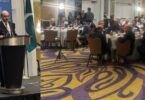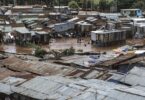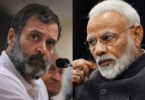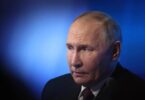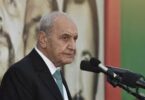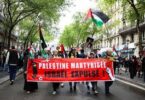ABUJA (AP): Nigeria’s opposition says there are more than 1 million ghost voters on the national register head of Saturday’s presidential election. Uche Secondus, the chairman of the opposition People’s Democratic Party, told a news conference in the capital, Abuja, on Thursday that the electoral commission “did not in fact do a cleanup of the register of voters” before publishing it.
He also alleged “a coordinated approach to register foreigners” as voters. The People’s Democratic Party, whose presidential candidate is Atiku Abubakar, is Nigeria’s main opposition party. A spokesman for the electoral commission did not respond to requests for a comment. The electoral commission says 84 million people are registered to vote. Nigerian President Muhammadu Buhari and his top challenger, Abubakar, renewed a pledge for a peaceful poll on Wednesday.
Meanwhile, Nigeria’s presidential candidates wrapped up their election campaigns, making a final pitch to voters before Africa’s most populous country heads into the polls. Two days before election day, President Muhammadu Buhari headed to his home state of Katsina in the northwest, while his main challenger, Atiku Abubakar, returned to his base in Adamawa, in the northeast. Both were due to address supporters at their final rallies before voting in their villages on Saturday.
Buhari, 76, is seeking a second, four-year term of office but is facing a strong challenge from Abubakar, 72, who has campaigned largely against the president’s record in office. There has been little or no reliable opinion polling but observers expect a close race. In 2015, results were announced some 48 hours after polls closed. In what he called a “state-of-the-nation address”, Abubakar said Buhari had failed to address insecurity, led a one-sided anti-corruption campaign and weakened the economy.
“Nigeria cannot survive another four years of this misdirection and maladministration,” he said, declaring that Buhari’s re-election would spell “disaster” for Nigeria. Despite his age, Abubakar, a former vice-president representing the Peoples Democratic Party, has portrayed himself as a pro-business, modern and tech-savvy candidate.
In particular he has appealed to the 18-35 age group that make up just over half of the 84 million registered voters, including by publishing a manifesto entirely in emojis. Buhari is “better left to take a long rest (to) attend properly to his health”, he added, referring to the president’s illness that saw him spend months abroad. The former military ruler, from the All Progressives Congress (APC), conceded his time in office “has not been an easy journey”.
But he maintained the government had made “great progress”. “Some of these achievements are visible for everyone to see. Some are still in the works,” he said in a video message, asking for support “to consolidate” the progress so far. Buhari, Abubakar and some 70 other presidential candidates on Wednesday signed a “peace accord”, promising a peaceful vote and to accept the result. Security was expected to be tight across the country, given Nigeria’s long history of election-linked violence.
On Thursday, APC supporters in the southern oil city of Port Harcourt clashed with police. Protesters carrying placards tried to storm the local offices of the election commission, calling for APC candidates to be put on the ballot for parliamentary and governorship votes. Police fired teargas and the crowd dispersed, an AFP correspondent said. A factional split in the state APC saw two separate primaries held for candidates and competing court cases to determine the legitimacy of one or the other.
The Supreme Court has since ruled that neither was valid. The Independent National Electoral Commission (INEC) says the deadline has passed for the submission of candidates Rivers state, of which Port Harcourt is the capital, has long been a flashpoint for political violence: in 2015, there were APC protests at the election results and claims of rigging. On a national level, there have been warning that both main parties could try to rig by buying biometric cards needed by voters to cast their ballot. Concerns have also been expressed about the ability to vote of some of the 1.8 million people made homeless by the Boko Haram conflict in the northeast. Ten polling stations have set up for the displaced in Borno state while three sites will be open for “IDP (internally displaced people) voting” in neighbouring Adamawa, INEC said. No timeframe has been given for when the results will be unveiled. In 2015, they were announced some 48 hours after polls closed.

